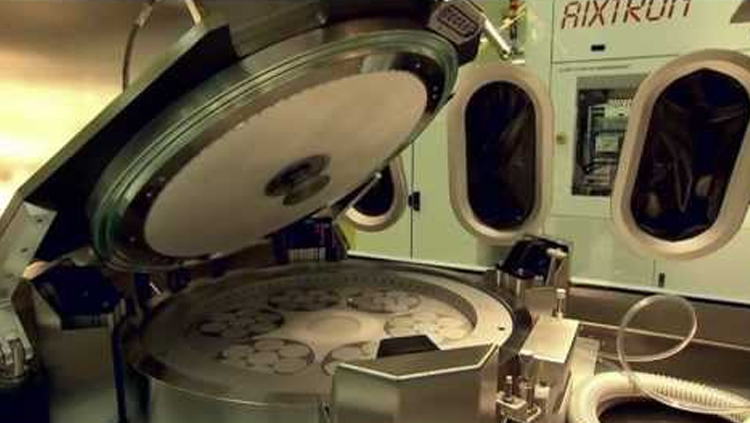UV-LEDs set for ramp as chip firms get hitched
The manufacture of AlGaN-based ultraviolet LEDs is set for a volume ramp following a strategic partnership set up by the US firm Sensor Electronic Technology (SET) and Seoul Optodevice Company (SOC) in Korea.
As part of the deal, which will lead to an increase in III-nitride epiwafer production at SET, the two firms have also taken an equity position in each other.
Jae Jo Kim, executive VP at SOC, said, "By partnering with SET we set in motion our strategic plan of becoming the largest manufacturer of deep-UV LEDs."
While Columbia, SC, SET has focused on innovative approaches to AlGaN epitaxy and the development of advanced semiconductor devices (see related stories), SOC is a vertically-integrated volume manufacturer of blue, green and near-ultraviolet chips.
The Korean company, which is based in Ansan-city, Kyunggi-do, is a subsidiary of Seoul Semiconductor, the country's largest packager of visible LEDs. With a production capacity of 3 billion LEDs per year, the parent company was ranked ninth in the world by Strategies Unlimited in its 2005 review of the industry.
Remis Gaska, the president and CEO of SET, said of the deal: "[It] will allow us to combine technological superiority in the field of deep-UV LEDs with the high-volume manufacturing capabilities and global marketing and sales network of SOC."
"This will accelerate our ability to bring low-cost, high-quality products to the market and meeting the demands of our customers in emerging deep-UV applications," he added.
Those applications are set to include optical sensing of potentially harmful biological agents, water and air purification, medical uses such as surface and tissue disinfection, protein analysis and more.
SET, which launched its own germicidal lamp earlier this year and has supplied AlGaN-based emitters to various developers of water purification systems, says that it already has more than 300 customers worldwide, suggesting that the market pull for applications is gaining strength.
However, the cost of the deep-UV chips is currently the major drawback that is holding back their widespread deployment. Developers of water purification systems have indicated that the price of a 0.5 W lamp would need to be in the sub-$10 range before the cost becomes viable.
With the ability to produce chips emitting wavelengths as short as 247 nm, SET will realign its operations following the deal with SOC to concentrate on the development of customized products that feature deep-UV LED components. It will also distribute those components in the Americas, while SOC will take responsibility for distribution across the rest of the world.
SET president and CEO Remis Gaska is one of the speakers confirmed for this year's Key Conference. See the agenda for full details about the two-day event, which will focus on five critical industry developments that are set to shape the future compound semiconductor business.


































